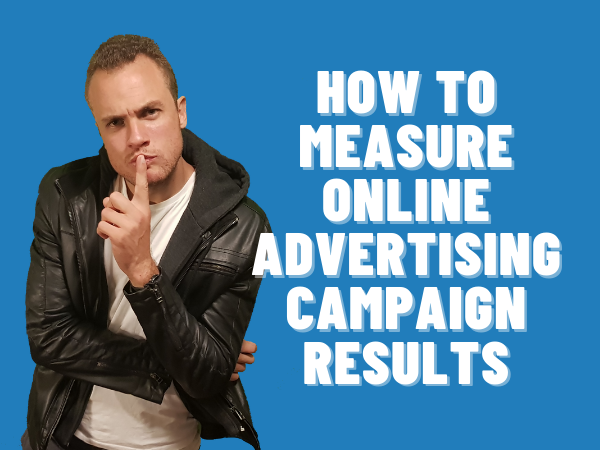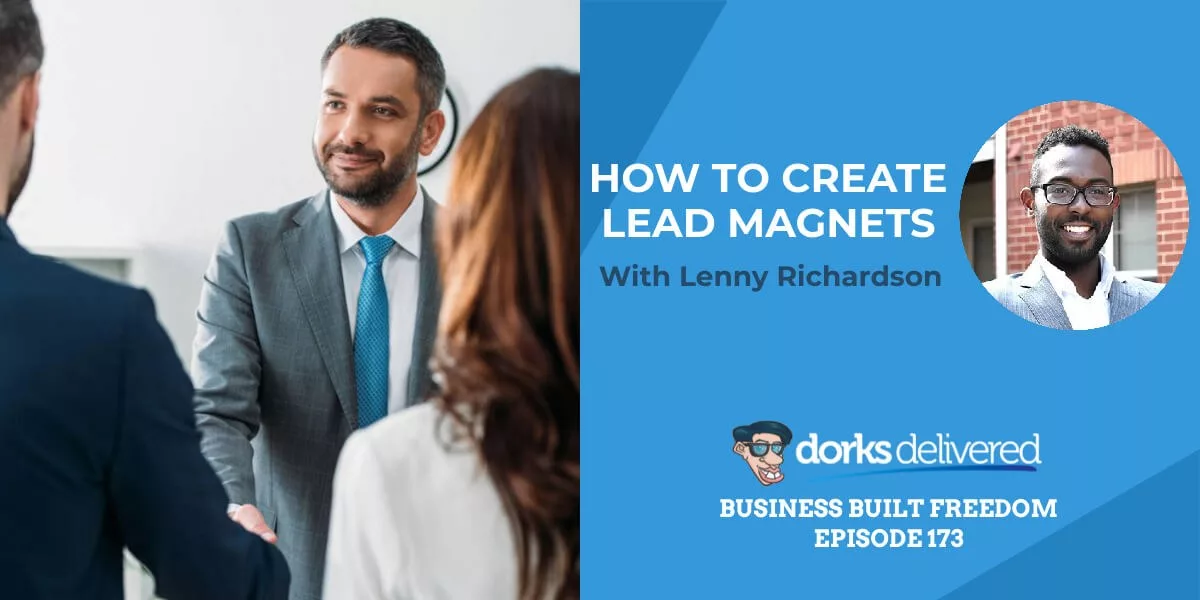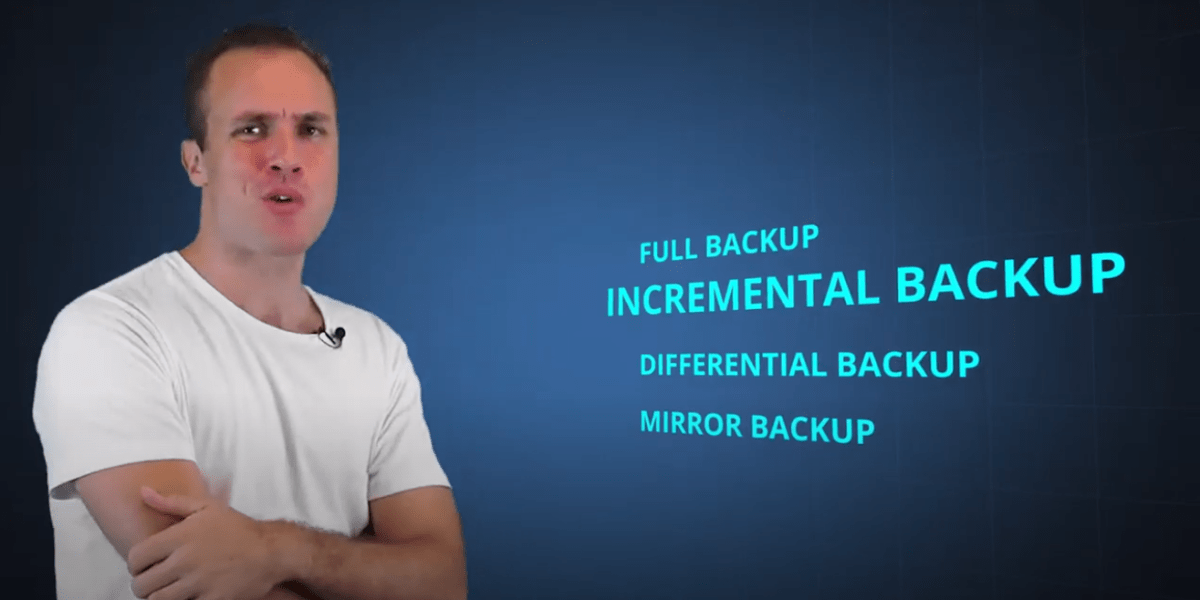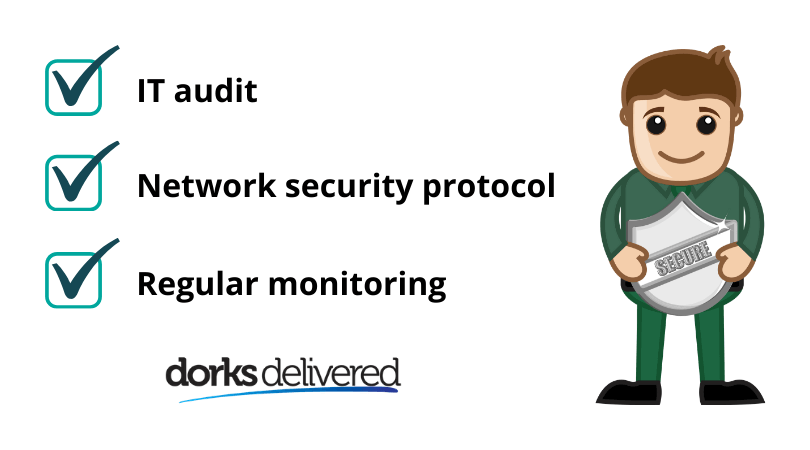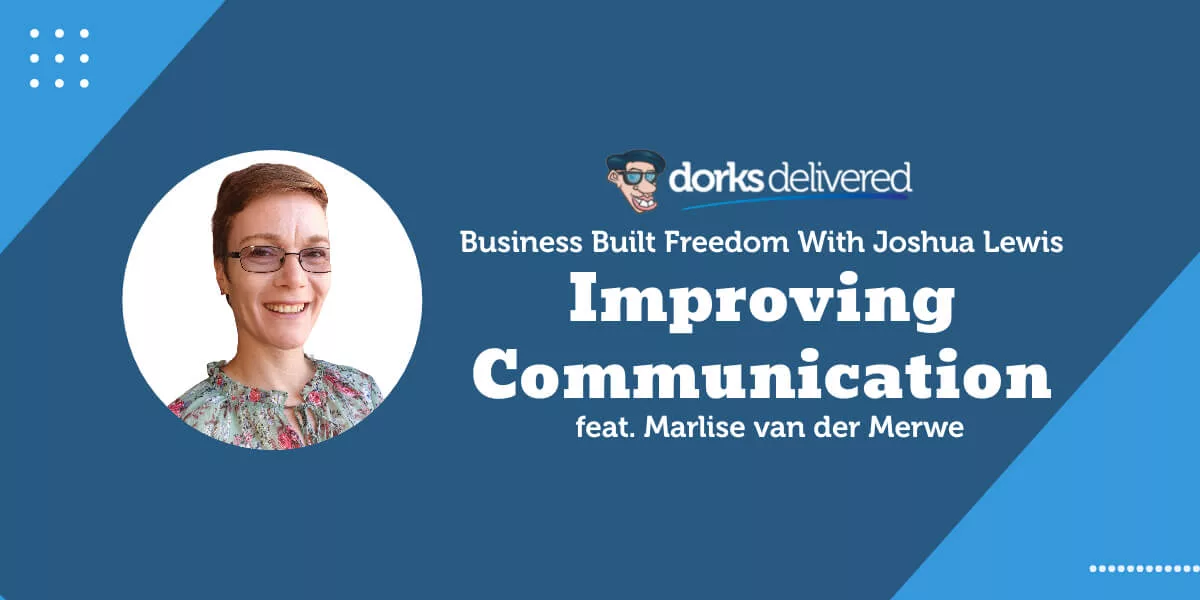Our special guest in this episode is Paul from No BNK, a non-bank business and commercial finance solutionist. Paul is a wizard when it comes to looking at a different way that you can do finance, which is especially critical in today’s financial climate. He has been involved in nonbank lending for around about 16 years but he has never ever put anybody in a loan with the bank. He explained, ‘If I want to borrow money from you, why do I have to go to a bank to do that? You put your money in the bank and then I go and borrow the money from the bank. That’s your money that’s in the bank. That’s not theirs. So why not just borrow directly from you? No BNK is set up where we facilitate accurate information between somebody who wants to borrow money and someone who wants to lend it.’ Listen to the podcast or read on to learn more about No BNK.
Josh: Everyone out there in podcast land, we’ve got a great guest for you today. We’ve got Paul here from No BNK, and he is a bit of a wizard when it comes to looking at a different way that you can do finance. This is especially critical in today’s financial climate. So Paul, tell me a bit about what it is that you do with No BNK.
Paul: So No BNK is predominantly a non-bank business and commercial finance solutionist. I’ve been involved in nonbank lending for around about 16 years. So I’ve done all sorts of finance. I’ve done everything from home loans to commercial development, construction equipment, finance, factoring, all that sort of thing. And I’m proud to say that I’ve never ever put anybody in a loan with the bank.
Josh: High five!
Paul: Look, you know, my adversity towards banks. Back in the 80s, back in the day when I got my first home, which was in late 1988, 89. You know we will be excited about getting our first home and interest rates at that time were around about 12% when we went and got our loan. The way it sort of worked back then was you go to the bank. And you’re begged for a loan and they’d say, ‘Yes, yes, we’ll give you a loan.’ And it was usually, you know, like about 70% or something that they give you, but they will do on a bit of a special, at the time for first home buyers where they give you 100% at interest only. We were living in a caravan when we first got married, so that was a pretty good option to get our own homes.
Josh: Absolutely! And upgrading it’s a pretty low-friction option, I guess.
Paul: The only thing was the in-laws had to go as guarantors. So I now know that today is like a parental guarantor. Really wasn’t heard of back then. So it was a little bit of a product for first home buyers. So we did that. We jumped in and we got the house and everything was going along nicely. And then we had to have the recession that we had to have. And our interest rates went from 12% to a 7%, 8.5% in the space of about six months. And just to give you an idea, the loan was $105,000. My repayment was $1,560 a month. Yep. And I was on $33,000 a year. So when you take tax out, 80% of my income was going towards paying my mortgage.
Josh: Yeah. Far out.
Paul: And it wasn’t knocking 1 cent off it.
Josh: Yeah. Just sitting there as interest only. And that is a scary spot to be in, because you’re not sure if it’s going to go up or down or left or right, or what it’s going to do. Somersaults.
Get reliable IT support without a lock-in contract. Fill out the form below to get a callback from a dork.
Paul: That happened with a lot of first home buyers over the years. Eventually, you know, it just got too heavy. I had to do up to 30 hours a week overtime to make ends meet, I was a fitter-machiner at the time,and you know, we ended up losing it. It’s just the way it was. There were a lot of people losing their properties.
 Josh: You weren’t the anomaly. I don’t think so.
Josh: You weren’t the anomaly. I don’t think so.
Paul: I sort of didn’t understand what happened to me. I didn’t like the banks at all when I worked it out. I’ve done a lot of study on the banks since then, or the banking system, and, you know, my thoughts on the global financial system is, I believe it’s a world’s biggest Ponzi scam.
I’ve been open and honest about this for quite a long time, about how I feel about the banking system and I’m a bit like the disruptor.. I’m all about wanting to make the change so that it’s a benefit for us, not so much just for them.
Josh: Yeah, well, I guess like I’ve done a bit of research into things such as the fractional reserve system and how that works.
Paul: Does it work?
Josh: Well, how it works doesn’t mean it works. No, you’re exactly right. It’s not a very good system, which is based on, now, nothing really. It’s just based on numbers in a computer. It’s not weighted against any real thing of intrinsic value.
Paul: Well, have a think about that. So what a lot of people don’t understand is that when you deposit money into a bank, you’re actually lending them that money. It’s a loan. You become an unsecured creditor, yet there is no security for that loan to that bank.
Josh: Yep.
Paul: It’s a promise that they give you. We’ll promise that we’ll give you your money back.
Josh: After changing you bank fees or having it in there.
Paul: Well, what a great deal for them, isn’t it? They say, ‘Joshua, can you lend me your $100,000?’
Josh: Yeah, no problem at all.
Paul: Now would you want to say, ‘Oh, I need a contract with that?’
Get reliable IT support without a lock-in contract. Fill out the form below to get a callback from a dork.
Josh: Well, normally you would. Yeah. You hope so.
Paul: No. So what’s going to happen, Joshua, on the bank is you’re going to lend me $100,000. You’re the bank, though. Not as a contract, but I do promise that I’ll give you your money back and I’ll dictate the terms. Right? So you might want 10% interest, but I’m happy to give you 1 ½. And you’ll say, ‘Yep, I’m happy to do that.’
That’s really what you’ve done when you put money in the bank, and just remember that one critical part. You’re an unsecured creditor. Meaning that secure creditors, in the event of the bank collapse or whatever, secured credit is paid first and then unsecured credits.
Josh: Yup. So in the situation where shit hits the fan hypothetically, we can all feel the recession, we can all hear it being spoken about, we can also feel some pressures around the place. If shit hits the fan and everyone starts frantically pulling money out of the bank, they’ve already planned for that, and that’s what’s been going through at the moment. Am I right?
Paul: Yeah, correct.
Josh: Tell me a bit about that for our listeners.
Paul: Well, long story short is that there are three generations of savers, so you’ve got your builders, you’ve got your boomers, and then you’ve got generation X, which is me. We’ve all been bought up as a generation of ‘get yourself a good job, save for retirement.’ It was all about saving money.
Okay. The other thing too is that we had our children quite young, so you know, I’ve been married 31 years and I’ve got married to my wife she was 19, and I was 23. And, we had our children when she was 21. So we had our kids young, and if you think about my father, he was one of 17 children, so they had big families. So they were called boomers, you know.
Josh: Huge families, but small houses.
Paul: Can you imagine having 17 children? And the house, there were three bedrooms, one bathroom, right?
Josh: One bathroom, 17 people. 17 children! 19 people.
Get reliable IT support without a lock-in contract. Fill out the form below to get a callback from a dork.
Paul: It’s 28 years from youngest to oldest. You know what I mean? Like it’s just a constant flow of, you know, at least seven, eight, nine people in a 3-bedroom house.
Josh: Should have bought a TV, so that there’s something else to do.
 Paul: Didn’t have TV back in the day, so what they did was they went out into the world and started the businesses and all that sort of thing and created quite a lot of wealth. And they stored that wealth in the bank because that’s what they were told to do, you know? And they’ll get great returns. So when I had those interest rates of 18% of my home, you would get 16% return on money that you had sitting in the bank and you know that’s a fantastic return. But look what’s happened over the years. You know, that was 30 years ago. Now we’re down to zero negative rates in other countries. Japan has been at negative rates for 20 years.
Paul: Didn’t have TV back in the day, so what they did was they went out into the world and started the businesses and all that sort of thing and created quite a lot of wealth. And they stored that wealth in the bank because that’s what they were told to do, you know? And they’ll get great returns. So when I had those interest rates of 18% of my home, you would get 16% return on money that you had sitting in the bank and you know that’s a fantastic return. But look what’s happened over the years. You know, that was 30 years ago. Now we’re down to zero negative rates in other countries. Japan has been at negative rates for 20 years.
Josh: How much money have they reprinted over there?
Paul: Does anyone know why? Does anyone really know why? Or is it just like it’s a bad economy and all this sort of stuff?
So what makes the bad economy? When people stopped spending! If you’re not buying things at the shop, then retail starts to drop off. I want to spend the money. So they’re trying to force you to get your money out to spend. Banks don’t make money out of people saving and make money out of people borrowing.
So they don’t want you having money sitting in the bank anymore. Their fractional reserve system, that doesn’t matter anymore because they’re reprinting money off loans. They make more money out of loans than they do early use saving. So the idea is to try to get that money out of the system and into risky investments or to just get you out there spending.
But when you have the majority of the world’s population over 45 years old, that’s when our spending curve drops right off. We’re not out there buying. We’re not down to supermarkets every week, three times a week, or whatever at the big shops.
I’d be lucky to go to near Robina. I’d be lucky to go there once a month.
Josh: Yup. For those listeners that didn’t hear you. You were saying the GFC is a light rain comparative to what could be happening. And I always say if it’s been 30 years since a major recession and it doesn’t hit right now, all that means is we’re going to be getting a slightly bigger downfall before we’re getting absolutely torrential rain in 7 or 11 years time from now. Would that be fair to say?
Get reliable IT support without a lock-in contract. Fill out the form below to get a callback from a dork.
Paul: It could be any time. When you think about in Australia, we’ve had 28, 29 years without a recession. What has stopped that recession from happening? So back in the 90s when it happened, like 1990, 91, we had the recession we had to have, but they didn’t do anything to try to stop it.
You know, and as I said, the interest rates are at 18% so what they’ve done to stave it off every year, you know, because the next government that comes in needs to be leaving it in a good place. They don’t want to be the government that caused the recession. Right.
Josh: The inevitable recession.
Paul: The inevitable recession. And when you look at what the US in particular, they’ve had about seven or eight in that amount of time. Australia have had none. So every time that you look at the interest rate table and you look at different things that’s happened, like the 9/11, the GFC, they’ve dropped rates 3% to 6% in order to stave off that recession. Probably the other recession that we had to have. And now we’re getting down to zero. We will be at zero. We’re 100% going to zero. Where do they go? Where do they go if we had some major problem, like a GFC or whatever again or a reset? How do they fix that?
Josh: I don’t know. How do they reset that? They can’t.
Paul: They can’t! There was a paper written 18 months ago by the IMF, and in that paper, they said that they are working on models to make -4% to -5% feasible.
Josh: All right.
Paul: So try to get your head around that.
Josh: I get paid to have a house. Is that right?
Paul: That’s already happening overseas.
Josh: I have read up about that. So that would mean that the more debt you’ve got. Go and buy a house now, ladies and gentlemen.
Paul: Why would they want to do that? Why would they want to get down to -4% to -5%?
Get reliable IT support without a lock-in contract. Fill out the form below to get a callback from a dork.
Josh: Well, I always say if they’re getting down to those numbers, it’s going to mean that people are going to be more wanting to get loans and get things like that.
Paul: I think it’s about getting rid of cash because if they could get rid of cash and move it into a digital world, get rid of the physical cash, then they’ve got complete control.
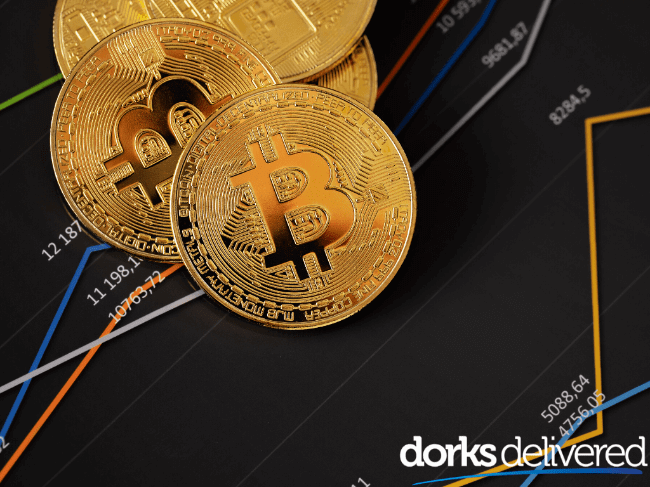 Josh: Well, see, the problem that I, and this is something that’s come about over the last 10, 12 years. When cryptocurrency started coming around, if you’re comparing apples with apples, and I’m not going to say that they’re both exactly the same, obviously. But when you have a digital currency being compared to a digital currency, which is, if they’re getting rid of all paper and all money becomes more frictionless to be able to move from the AUD to a Bitcoin or any of the other cryptocurrencies that are out there without it being is in the power of the banks or anyone else. How do you think they are going to overcome?
Josh: Well, see, the problem that I, and this is something that’s come about over the last 10, 12 years. When cryptocurrency started coming around, if you’re comparing apples with apples, and I’m not going to say that they’re both exactly the same, obviously. But when you have a digital currency being compared to a digital currency, which is, if they’re getting rid of all paper and all money becomes more frictionless to be able to move from the AUD to a Bitcoin or any of the other cryptocurrencies that are out there without it being is in the power of the banks or anyone else. How do you think they are going to overcome?
Paul: Well, I believe cryptocurrency is a red herring. I believe that it’s just been set up for you to play with while they build their real money system. And there’s a little bit of a showing of that last week. So in this IMF paper, what they actually said is that they would introduce e-money. They call it e-money. And basically what that means is that that item there is $100. They say, ‘Joshua, you know, that’s $100 if you pay cash or $95 if you use e-money.’ And you go, ‘Well, I’ll use e-money.’ So that’s how they destroy cash. So they make it worth less than what it is. That’s how they get rid of it.
There’s a bank in Sweden, and the currency in Sweden is krona. The central bank in Sweden has announced the e-krona and they’re in the second phase of testing e-krona.
Josh: The timing of it’s great.
Paul: And of course, it runs on blockchain because blockchain is a great technology. But yeah, it’s a decentralized system? I don’t believe so. I think it’ll be a very centralised system, but it’ll definitely be electronic or digital.
Josh: Yeah. Okay. So I guess the recession at this stage, you’re saying, is inevitable. It’s going to happen. Got a beautiful way to at least have people that are struggling a little bit in their business, whether that be because they need to have more finances bought into it. Or maybe you’ve got people on the other side of the coin that have liquid assets or liquid cash where they want to be able to use that and invest into something that’s going to be giving them a bit of a better return without having to put it into the big nasty banks. How do you go about? How does No BNK work?
Get reliable IT support without a lock-in contract. Fill out the form below to get a callback from a dork.
Paul: So the way that No BNK came around is that many years ago, I looked at many of the managed funds and different places like that where they would collapse. There were quite a few here on the Gold Coast where a lot of those managed funds collapsed and the person who lost that was the investor every single time.
And it’s only because the managed funds, number one, they think like a bank. And number two, they take their fees and everything out first.
I’m not saying that all managed funds are like this. I’m just saying that when you get that real control freak at the helm, that’s when there’s a problem. So I designed a system where there is no control freak. So it’s all about putting the control, the choices, the security back in the hands of the investor.
And the number one thing is the trust. You know, because I think that we put a lot of trust in these organisations, in the corporate side, the banks and a lot of these managed funds. That’s what we were told. You know, this is what you do. And I think they’ve broken our trust. I think they’ve broken our trust big time. You know?
The way that No BNK is set up is that we make our number one product service. You know, everybody wants service. Well, the banking model can’t give you service. It’s impossible because of the way that their pecking order is designed.
So their pecking order is profits first, shareholders second, then clients, then employees, that’s the pecking order. They can’t give you service. They don’t make money out of service.
We’re not about that. We’re about, if we create that service for you, where you’re having a great experience and you feel that you’ve got the trust and you will have to trust because what I say to people is, who’s the one person that you trust more than anybody else in the world? To make the right finance decision for you. It’s yourself, right? You trust yourself more than anybody else. So why are we giving that away? Why are we giving that trust away to the banks? So what we’ve done with this platform is that we’re going to make you the bank.
Josh: Okay.
Paul: If I want to borrow money from you, why do I have to go to a bank to do that? You put your money in the bank and then I go and borrow the money from the bank. That’s your money that’s in the bank. That’s not theirs. So why not just borrow directly from you? So the platform is set up where we facilitate accurate information between somebody who wants to borrow money and someone who wants to lend it.
So the terms are all worked out, and if the borrower is happy to go, and the lender is happy to go, we just put those two together. That’s all we do. And they’ve paid monthly returns in events on their investment. I don’t know how many other investments you get paid monthly in advance, and it’s direct in the security goes into the investor’s name.
Get reliable IT support without a lock-in contract. Fill out the form below to get a callback from a dork.
Josh: Okay. So let’s say I’m new to the idea and I’m going, ‘Okay. Yeah. Stuff the banks. They’ve stuffed me over too many times.’ Without saying the bank that I’m with, I can see the interest rates that I could be getting just changing to another bank, I could be saving $11,000 a year in mortgage repayments, and I had to look and I thought, ‘Ah, it’s too hard.’ How hard is it? Or how would I go about moving a lot like a house?
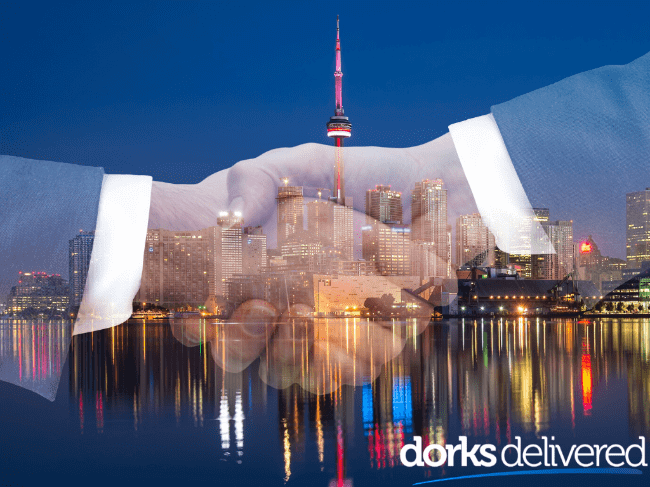 Paul: The area that we’re not going after at the moment is the consumer market. It’s very regulated. There are a lot of rules around that market. We’ll get to that. We’ll get to that market. But the area that we want to look after, first of all, is the business and commercial arena.
Paul: The area that we’re not going after at the moment is the consumer market. It’s very regulated. There are a lot of rules around that market. We’ll get to that. We’ll get to that market. But the area that we want to look after, first of all, is the business and commercial arena.
I think that if you look after the business side of things first and the business owner, they’re gonna have to worry about their day-to-day things rather than worrying about when the next dollars, you know, how they’re gonna pay their bills, if the bank’s going to foreclose on them and the house is tied to that loan and all that sort of stuff.
So we look at things a lot more commercially and it won’t always need to be property initially. There’s a lot of lending that happens out there that a lot of people don’t know about, where you might have some text it or you need to, you want to jump on an opportunity pretty quickly and all this sort of stuff.
So they use private, short-term lending and that short-term lending could be a loan that’s anything from 3 months to 3 years. It’s not a 30-year loan and all that sort of stuff, and it’s just about jumping onto an opportunity or it could be getting out of trouble. You know, ‘We’re in a bit of trouble over here. We need to pay back the bank and get some cash flow into our business as well so that we can stay afloat.’ So really, we’re more targeting that area there at first, which is perfect. Yeah. Well, I think it’s an area that’s very under-serviced.
And the other area that we’re targeting, and this, as I said before, is those people all around the world, those high net worth investors all around the world that’s got money sitting in the bank and it’s getting them no return or very low returns. We want you to be able to negotiate the term between what sort of return you want. So really you get to choose the return you want. And the client gets to choose whether to accept it or not.
The way this platform is designed is that as an investor, we don’t touch your money. So we never touch your money. We’re not a managed fund. It’s not a pooled investment. It’s not a, you know, sort of property trust. It’s not a contributory fund, none of that sort of stuff.
It’s just one loan, one investor, one loan, one investor, one loan, one investor. So someone wants to borrow $1 million, the investor’s gonna put up the whole $1 million, and we’re just going to put those two directly.
Get reliable IT support without a lock-in contract. Fill out the form below to get a callback from a dork.
Josh: So it sounds like obviously it’s a lot of advantages for both parties in regards to the returns that they’re going to be getting, as well as the rates that they’re going to be paying because you’re cutting out the bank in the middle. What would be some of the, I guess, risks? Or does it take the same amount of time to process through if you wanted to get an equipment finance loan for $50,000 for a new digital printer or something like that.
Paul: The process is quick, it all happens within 24 to 48 hours. You’ll know how many people So as a borrower, you’ll know how many people are interested in doing your loan and you’ll get offered the lowest interest rate that they offer.
Josh: Is this a global thing or is this just Australia?
Paul: This will be a global thing. Initially, it’s Australia, but we do want to take it globally because the problems that started in the world, the reason why I’ve talked a lot about Japan is because the reason why they’ve already experienced all this, what we’re going through, is they’re the oldest population in the world, you know? So it all adds up to me. Their ages crossed over and over that 45-year mark, they’re average age crossed over 15 or 20 years ago. So it comes in a lot sooner than what it has to us.
Josh: And their workforce is diminishing because of that.
Paul: That’s exactly right. And the wages aren’t going up. All the problems that we’re starting to have here in Australia, you know, property prices are going through the roof, but wages aren’t going up. So the next step is how does somebody that’s on 60 grand a year buy a million dollar property in Sydney? Well, I’ll have to have a 70-year mortgage just like they have in Japan. You can see it. You’re watching the pattern globally. It’s happening all through Europe. You know, there are 30 countries in the Eurozone now that are on zero and negative rates and the lowest is -0.75.
Josh: All right. That’s nuts. It’s nuts when you think about it, and as you were saying, like it was only 30 years ago, we had the last recession, and so for Japan to be at the position…
Paul: 20% 30 years ago. Now the -0.5.
Josh: And that all comes down to the workforce and the economy, and that’s where we’re, as you said, we’re heading towards the potential issue here.
If someone wants to jump in and jump onto No BNK or hear any more information, how do they go about sort of doing that?
Get reliable IT support without a lock-in contract. Fill out the form below to get a callback from a dork.
Paul: The good thing about us is we can look after you no matter where you are in Australia and then as I said, that eventually, New Zealand will be pretty quick, but then we’ll be going into places like the UK and America and things like that as well. This is something that can go global and that’s the whole idea is that we’re about like, you know, if you’re going to disrupt your models and make it worthwhile.
Josh: Absolutely. If you’re going to kick the big in the head you may as well do it globally.
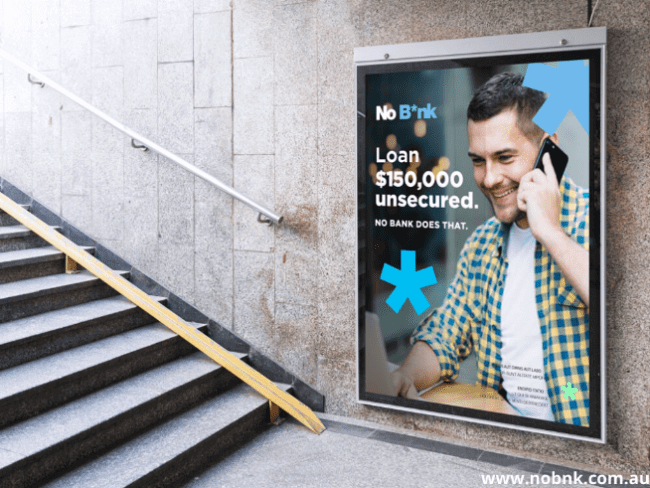 Paul: They had their place and as I said, we’re not going to manage, we’re not going to take your money and just go and do a hope and pray thing like many do. Your money stays in the bank under your control, so nothing changes, right? The only thing that changes is you get the opportunity to be able to have a crack at one of these deals and become the bank.
Paul: They had their place and as I said, we’re not going to manage, we’re not going to take your money and just go and do a hope and pray thing like many do. Your money stays in the bank under your control, so nothing changes, right? The only thing that changes is you get the opportunity to be able to have a crack at one of these deals and become the bank.
And your worst case scenario is you’re sitting there with a security in your name and you’re getting a return. Whereas what’s your security in the bank? There isn’t any, but if you don’t win the deal, because it’s going to be like an auction type system where you make a bid on what sort of return you want, then nothing’s changed in your life. You still get your money sitting in the bank, you know? No one’s touching it. No one’s taking any fees off you or any of that sort of thing.
We’re all about mitigating risks. We’ve got to mitigate the risk for the borrower, the lender, and for ourselves. So it’s about everybody having this happy equilibrium, you know? That’s how we’re going to structure this thing.
We’ve got a whole website there. It’s No BNK.com.au. And the reason why we got B N K is because ASIC won’t let us use the word ‘bank’. It’s a swear word. So we call ourselves No BNK and we advertise as no bank does that, which has a double meaning. No bank does that.
Josh: Perfect. As an investor and a borrower, what’s the starting and ending amounts you can go for.
Paul: Because we’re starting with the property component of it first of all, the minimum line would probably be around the $50,000 mark. This is why we’re up to sophisticated investors.
So this is some for your institutional versus, or you know, like your mum and dad’s and things like that. You must be a high net worth. You know, I know people out there, they have tens of millions just sitting in the bank.
Josh: Yep.
Get reliable IT support without a lock-in contract. Fill out the form below to get a callback from a dork.
Paul: Globally. So you might have somebody, you might have a deal here in Australia. There might be somebody in Japan that makes a bid on the deal and all of a sudden they’re getting a return of 4%, 5%, 6%, 7%, whatever it is, whatever that agreed return is, where they’re getting nothing over there, but they’ve actually got to pay to put their money in the bank over there.
So it’s a really good outcome because, you know, we just let the market set itself dynamically. There is no ‘ring Paul up and say, “Mate, what interest rate can I get?”’ There’s none of that anymore. It’s just like, well, it’s whatever anyone’s prepared to bid and whatever you’re prepared to pay.
Josh: Yep. So it’s win-win.
Paul: And look, there’s rules for the investors. I’ve got a pretty good record. We’re doing this sort of thing.
Josh: You’ve been doing it for more than 10 years?
Paul: Yeah, about 10, about 12 years now. I’ve been doing these sorts of loans for some high net worth. And in that amount of time, we’ve had no foreclosures and the investors haven’t lost money in the capital. And it’s just about managing it.
Josh: That’s a good run.
Paul: Yeah. It’s just about managing. You don’t smash people when they’re down. You help them. You don’t have to be all hard about it. You know, you’re a day late or two days late with your payment. It’s about managing it. Nobody gets hurt. You know what I mean?
Josh: So how do you guys come into it? Do they just clip the ticket on the way through?
Paul: You have a gross line amount. You have a net loan amount. You got to add that first month’s interest. There’s lawyers involved, there’s all sorts of things, which for the investors, it’s great for them. It’s their lawyer. So it’s a lawyer of their choice. And you know, usually there’s brokers involved in all the research, so there’s nothing under the table. So there’s no hidden fees and charges and all that sort of stuff.
In our letter of offer, it’s like, say for example, you want half a million dollars and it might cost $520,000 you know, like when you add everything up. So you say, okay, so your gross loan amount is 520, that’s what it is. You’ll see all the costs that are involved, all the rest of it, and you get the choice to say, ‘Yeah. I’m happy with that.’ ‘Well, no, thank you.’
Get reliable IT support without a lock-in contract. Fill out the form below to get a callback from a dork.
Josh: Fair enough. Cool. Cool, cool, cool. I think there’s going to be a big help for a lot of people that are feeling a bit of pressure, whether that’d be as an investor or they’re looking potentially down the barrel of a gun for a business. They might not be going as well as it was. Is there anything else you’d like to add?
Paul: There’s lots of businesses out there that need lots of help in different ways. It’s not just about, you know, finance and properties and all that sort of stuff. It’s just about knowing that there are people out there that, you know, we’ll have a chat about it first.
I mean, whether you’ve been rejected by a bank, don’t want to go to their bank or can’t go to a bank, that’s why we’re here. So pretty well covers everybody. When you do those things, we tell them, you don’t go to the bank, come to No BNK.
Josh: I guess back in the day, there was like no-doc loans and things like this. This is from a business owner’s perspective.
Paul: It’s a very, very simple process. So you know, the information that we asked from you is not onerous. It’s really quite simple. It’s a very quick application process. This platform that we’ve built that we’ll be releasing in the next couple of weeks, it’ll be automated.
It’s just a quick, you know, fill in the application process type of thing and you’ll get SMS and emails and all that sort of stuff, and then so will the investors and they’ll be able to start bidding on your deals straight away.
Josh: Sweet.
Paul: It’s a little bit of a game changer, come to the market.
Josh: Absolutely. Yeah.
Paul: That’s what it’s about, isn’t it? It’s about changing things up and seeing if we can do it better and make a change, you know, a different change for the better for once rather than just doing the same as everybody else.
Josh: Really enjoyed talking to you and is there anything else you’d like to add before we jump off?
Paul: No, mate, I really appreciate it. Thank you very much. I’d like to wish everybody out there that, you know, there is hope. It costs you nothing to apply with us or to have a chat with us or anything like that. So, you know, your people wanting to, you know, they’re welcome to have a chat anytime they like.
Josh: Cool. Only advantages and as I said, a very welcome time for me to be talking to you about this sort of stuff for a lot of people out there.
Paul: Appreciate it, mate. Thank you very much.
Josh: If you have any questions and bits and pieces, we’ll put a link down to No BNK as well as Paul’s details. If you’ve enjoyed this episode, jump across to iTunes, leave us a review, give us some love and stay good.
Contact the 2019 Fastest-Growing MSP in Australia to learn more about IT solutions that suit your business.



